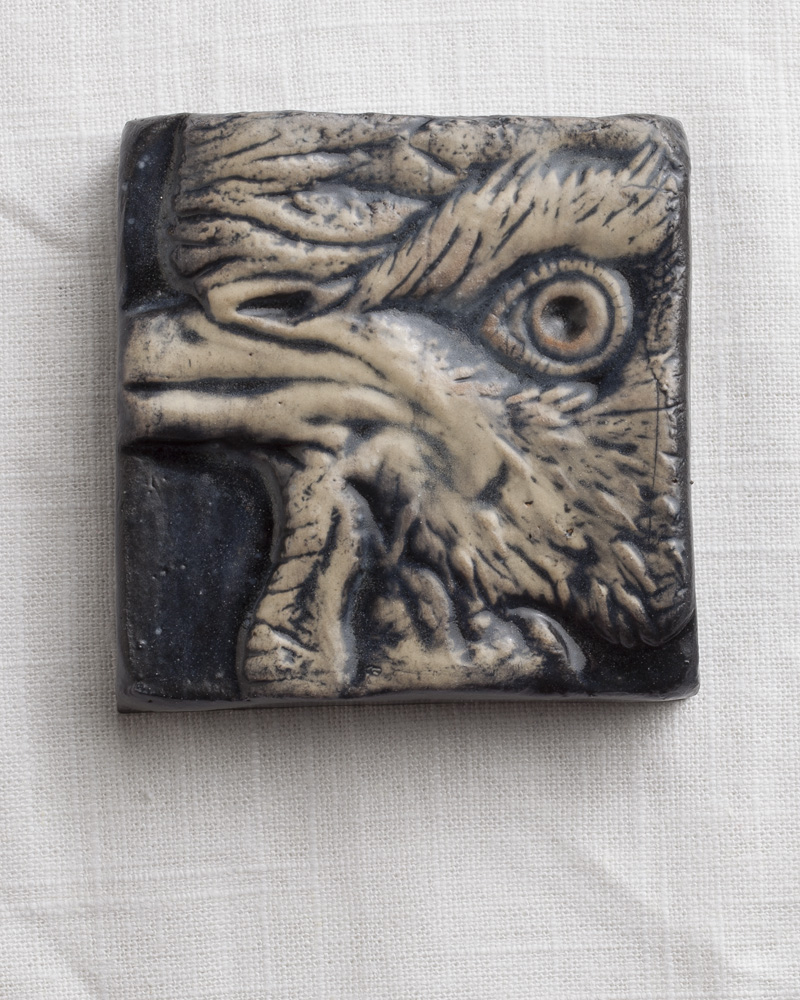#036
Stoneware tile, painted with underglaze, satin celadon glaze top coat. Oxidation fire.
3.25 x 3.25 x 0.875″ with indent on back for hanging.
100% of the money made from this product will be donated to The Institute for Animal Happiness in order to support the care of their growing flock of birds rescued from abuse and neglect. As such, the minimum price for this tile is $25. Any orders placed below this minimum will be immediately canceled and refunded.
For the moment, we must charge tax. Residents local to upstate NY may elect to pick up their tile(s) free of charge.
1 in stock
Description
Stoneware tile, painted with underglaze, satin celadon glaze top coat. Oxidation fire.
This tile is hand-pressed from a plaster mold. An original relief was sculpted onto a master tile, and from that master the plaster mold was made.
The tiles are 3.25 x 3.25″ and 0.875″ thick. There is an indent on the back for wall hanging with a nail.
The Institute for Animal Happiness is a micro-sanctuary for rescued chickens in upstate New York. The likeness featured on this tile is of Buckles, a bird rescued from the violent Kaporos ritual slaughter along with another chicken named Pancakes. Sadly, Pancakes could not overcome the abuse he was subjected to and passed away shortly after rescue. Watch this video about their rescue.
Chickens brought to the sanctuary have often lived tragic lives, but the IAH gives them the opportunity to feel love and freedom. The caretakers do everything in their power to give the residents a comfortable and loving home, from building a coop by hand to designing and testing various wheelchairs for the differently-abled. Due to generations of evolutionary abuse, their bodies require constant monitoring: domesticated chickens suffer from weak hearts, out of whack metabolisms, female chickens are doubly charged with a taxing reproductive system. In order to keep the gang healthy they require quarantine immediately upon arrival, screenings for infection and parasites; then as they live out their lives they need regular check ups and caretakers must be watchful of possible symptoms
Domesticated chickens were bred to be disposable production machines right up to the end of their lives at slaughter. Veterinary knowledge of their medical care is disappointingly far behind most other animals. In difficult cases, the IAH must travel long distances to consult with avian specialists. Chicken caretakers around the world share experiences and results of diagnoses and treatments, and their collective knowledge helps to educate local vets.
Because of this, the IAH is always in need of funding for chicken healthcare. We hope to make a difference for them.
You must be logged in to post a review.


Reviews
There are no reviews yet.